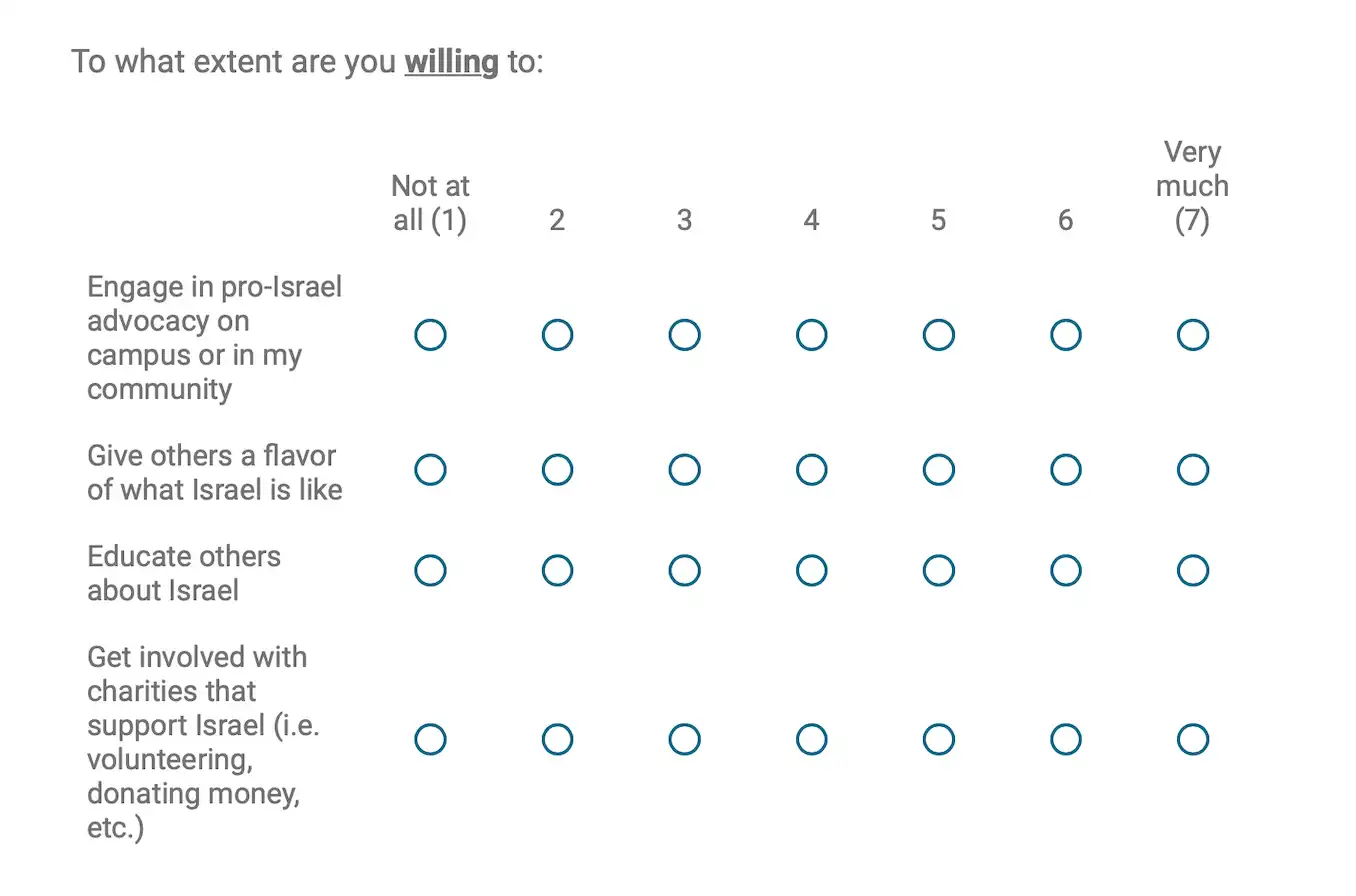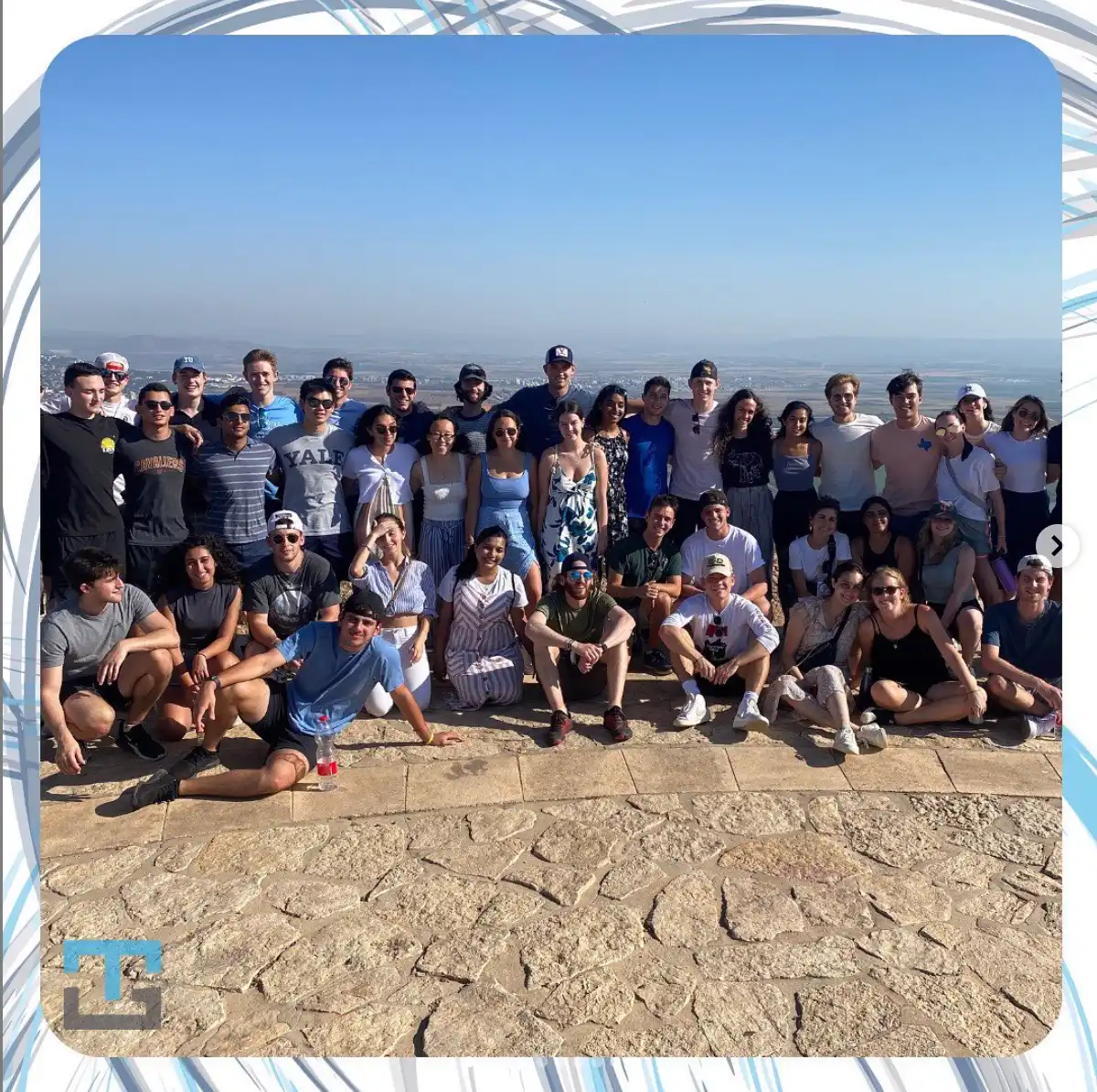Insights on the TAMID Fellowship
Insight one of the most recognized undergraduate student fellowships
The TAMID Fellowship is one of the most recognized undergraduate student fellowships, providing students with the opportunity to intern in Israel for 8 weeks, with housing and airfare included. They insure every fellow with food stipends, internships, and three trips around the north and south of Israel as well as Jerusalem. Companies can range from small start-ups promoting women’s safety such as SafeUp, to multinational companies such as KPMG and Deloitte. Networking events with industry experts and direct communication with senior managers make the fellowship unique in its exposure of the Israeli workforce to incoming professionals. This past summer I was one of the two NYU Shanghai students who was able to physically go to Tel Aviv, serving as the first in-person Fellows after the eruption of COVID-19.
TAMID is a business student organization across multiple universities around the world. It promotes students to get in touch with Israel’s startup environment through consulting projects, stock pitch competitions, and in some college campuses software development branches. It provides students with an early professional experience, and learning opportunities from fellow students. One of TAMID’s highlights is its Fellowship which brings TAMID members from across the world to Tel Aviv to intern in Israeli companies. I first heard about the TAMID Fellowship while I was studying away at NYU Tel Aviv in my freshman semester. My professors and classmates at the campus made me fall in love with the city, making me incredibly motivated to return, and so I joined TAMID to immerse myself in the Israeli start-up environment. In December 2019, I was awarded with the TAMID Fellowship along with 4 other NYU Shanghai Students. The NYU Shanghai Chapter was founded in 2016 and is one of the five affiliated non-US colleges and the only chapter in East Asia, therefore making it one of the few chapters without a Jewish majority. It is worth noting the structure of TAMID works between TAMID National and TAMID chapters, being separate. The TAMID Fellowship is not coordinated by NYU Shanghai students but is an opportunity available to them.
The process begins in October-November where you first write your application, submit a one minute video of yourself, go through interviews and wait to hear back. Acceptances were given in December 2020 and announced with the intention of being set in-person. Three of the five accepted NYU Shanghai members, including myself, were located in Shanghai, meaning that leaving China would be risking not coming back or the dreaded three week quarantine upon returning. My expectations were similar to those of NYU’s solutions to COVID-19: attend blended mode courses, those who can attend in-person do so, or those who cannot, remotely. This was immediately rejected by TAMID fellowship, therefore two of the three recipients decided not to take the internship.
TAMID handled the pre-arrival process very smoothly, buying tickets two months in advance. However, I was surprised when the bombings throughout Gaza and Israel began in May of this year, TAMID sent an email detailing their security communication lines overseen by the Israeli Defense Forces and Israel's Ministry of Education but no alternative option of participating in the program. Remote work was not considered even amidst a pandemic and bombings, with casualties accumulating, one month prior to the fellows arrival in Tel Aviv. TAMID Fellowship promotes itself as an apolitical and secular organization, but is co-led with Onward Israel, a Jewish non-profit organization with intent to bring Jewish students around the US to Tel aviv for interns. Pre-program and post-program surveys led by Onward Israel included questions such as “to what extent are you willing to engage in pro-Israel advocacy on campus” making it questionable how apolitical TAMID National is.

The process of entering Israel was not an easy one, but coming as an NYU Shanghai student nothing seemed as complex as China’s immigration processes. As of the publication of this article, Israel is issuing entry permits for those who come from approved countries as well as to those who are vaccinated. Consequently, one of the NYU Shanghai recipients had not yet been able to be vaccinated and was therefore unable to enter Israel. Having my tickets issued, everything seemed in check until it was announced three days prior to my flight that no entry permits had been issued, and therefore fellows could not enter Israel; however, we were advised not to cancel any tickets as they had high hopes TAMID would have the permits within 72 hours. As my travel itinerary was by far one of the longest (29 hours with 3 layovers), TAMID called me nine hours before my flight and said not to get on the plane. Most arrivals were delayed a week while they secured entry permits.
Once we arrived in mid June, we were put under a 24-48 hour quarantine until we received our PRC and IgM results. The fellowship began and it felt surreal after a bumpy start. We had community managers — Israeli staff members who helped us familiarize ourselves with Tel Aviv — fellowship managers — Fellowship Alumni — and the leadership. During our first week we celebrated the first in-person Tel Aviv Pride Parade in two years and explored the beaches of Tel Aviv with our cohort. My apartment complex was located in Florentin, the “hipster” area of Tel Aviv, 20 minutes away from the beach. I shared the space with 15 other fellows whom I got to know the best. I made lasting friendships discovering different restaurants and bars as well as meeting locals with the fellows. Between watching the EuroCup and Copa America with a fellow Latina, the experiences shared were definitely memorable. However, I was underwhelmed by the lack of diversity among the fellows. Although it is hard to compete with the diversity we have at NYU Shanghai, it was surprising to see no acknowledgement of it from fellows or staff. Not only was this year’s fellowship smaller than normal given vaccination requirements and entry permits, but it is also worth mentioning that there was not a single Black fellow among the 94 students — mostly US-American —- in the program. More specifically, approximately 95% of the fellows were US-American. This lack of diversity awareness can be highlighted by an instance of a community manager singing racial slurs during one of the weekly cohort events. Taking such measures into account is incredibly important if TAMID wants to truly promote cultural integration of any kind.

In addition to networking with other fellows from American universities, an immense highlight of the fellow are the amazing, cross-industry internships available for TAMID fellows. Companies across Tel Aviv, and even surrounding cities can recruit interns from the pool of fellows. It is worth noting companies decide independently from TAMID, but the student organization is a facilitator to allow students greater exposure to managers. Internships ranged from software development interns to summer analysts at investment banks, providing a wide variety of careers to explore. I interned at Deloitte with approximately 15 other fellows, but the only one on the Corporate Social Responsibility Team. This branch of Deloitte’s risk advisory is relatively new, but allowed me to fully immerse myself with my team. Everyday I went into the office, had lunch with my coworkers, had meetings with my boss and attended social gatherings hosted by Deloitte at the Azrieli Center’s gardens. I truly cultivated long lasting relationships in my work, and felt like I was contributing to their work — not just them scrambling around to give me tasks as many other interns experienced.
During the last few weeks, the fellowship was getting just as rocky as the beggining. My fellowship was always intended to end approximately a week earlier than others due to the three week quarantine I had to undergo in Shanghai. 10 days prior to my departure, one fellow tested positive for COVID and TAMID staff left fellows without any direction for 72 hours. Fellows weren’t sure where to get tested, whether to quarantine, or to continue attending internships in-person. During those following three days, a second fellow tested positive (they lived in the hostel which hosted 40 fellows in rooms of six). TAMID’s staff response was dangerously slow, and three weeks prior a fellow had asked what measures there were in place in case of a COVID outbreak within the TAMID members, to which their response was “you are all vaccinated, you should be fine.” Quarantine was encouraged, but not enforced, and for my situation traveling back to China, I could not get COVID. The US Embassy in Israel eventually encouraged US citizens to “immediately return” and that is when TAMID finally let fellows return home and continue internships remotely if they wished. By the end of the fellowship, TAMID staff apologized profusely for their lack of communication and promised to improve and try better. It was quite a disappointment seeing many of my fellow NYU Shanghai students have to turn down the fellowship due to bureaucratic obstacles, yet see the last month of the fellowship exactly as we had asked for, blended.
Although there are many things TAMID could have and should improve in the future, as a student looking for professional immersion it is one of the most beneficial opportunities I’ve participated in. However, leadership of fellows’ safety, the ability for a blended work mode to promote opportunities for those whose passports or countries do not yet allow vaccinations, and diversity are the biggest areas for improvement for TAMID. As a student, if you are thinking of applying, make sure you know your capabilities of traveling alone and are independent enough to take matters into your own hands. Although I hope in the future TAMID is better equipped to handle pandemic/other obstacles as they arise, it is important to be able to handle them as an individual if they do not. As I witnessed, however, having gone through NYU Shanghai adaptations in COVID throughout 24 months, was the biggest preparation to navigate immigration processes, COVID breakouts, and 28 hour flights. I would believe most if not all NYU Shanghai students have the capability to do the same.